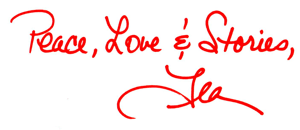If you’ve been online for any length of time, you’re familiar with phrases like “6-figure Blueprint” or “High-traffic Formula.”
Maybe you’ve used one of those jargon phrases in your own marketing?
It would be hard not to. People devour that kind of thing.
It’s almost like “blueprint” equals “magic bullet” in our collective subconscious.
And the worst part is that when we, as marketers, rely on jargon like this, we do nothing to foster new ideas or new value for the economy. We just perpetuate copy-cat methods of doing business.
In fact, using these kinds of words breeds the idea that we can make money (and loads of it) by doing exactly what others have done, exactly how they’ve done it.
Like there’s a GPS system that will give you turn-by-turn instructions for running a business.
You and I both know that this kind of thinking — and way of marketing — is a hot load of crap.
Look, I totally get why and how we got here in the first place. (And it’s not because we’ve forgotten how to find thesaurus.com.)
Just over a year ago, I moved to Portland with nothing more than what fit in my car.
No housing. No furniture. Just me and a few necessities.
I spent my first nine days here looking at Craigslist ads and putting hundreds of miles on my car inspecting apartments.
And while I had less than zero clues about where all those addresses were or how to find them, I did have someone with me who did.
Yes, I mean Siri.
Without her (and my unlimited data plan), I would’ve been an emotional wreck more times than I’d like to admit. (Have you been to Portland? I swear the city fathers were drunk when they laid out the city!)
Eventually tho, I made myself turn her off so I could learn how to find my way around without the help of three satellites and a cell phone.
Which isn’t to say I don’t still use it from time to time. (I totally do.)
If you’re like me, you LOVE the fact that we have this thing we can carry around that will keep us (mostly) from ever getting lost again.
It’s so NICE to have someone tell us which way to turn, right?
No pressure to figure things out while driving in the rain. Or while the kids are screaming bloody murder in the back of the car.
Sweet Baby Lettuce, who needs that kind of stress?
But eventually, if we’re smart, we turn off the GPS and find our way around. On our own.
Thinking for ourselves — figuring things out — isn’t just good for our brains. It’s required for innovation and real change.
Here’s the thing: social media and doing business online is new terrain for a LOT of folks. Heck, just owning your own business is new terrain for everyone, at first.
So I can understand the keen desire for a quick easy answer to “How do I do this stuff?”
But there’s a LOT of business and marketing folks who prey on that emotional stress.
They know we’re in a hurry to get where we want to go.
They understand we crave a simple “roadmap” or “blueprint” to six figures.
In fact, they bank on it. To the tune of hundreds of millions of dollars each year.
It’s the marketing shortcut that way too many coaches and consultants take.
But that doesn’t make it right.
We need to remember that their road maps, blueprints and recipes probably won’t work for us.
Because? You’re YOU, I’m ME, and they’re THEM.
Our abilities, resources and talents aren’t the same. Our ideal clients aren’t the same.
AND? Things change so quickly in the digital world that their road maps probably won’t work for them again the same way, either.
It’s Time We Teach Each Other How to Think Critically
Will you join me?
Let’s help our clients develop critical thinking skills. Our world needs us to nurture their creativity, not their dexterity with filling out forms.
And for the love of all that’s holy, can we stop promising them an easy six-step path to a six-figure lifestyle?
Can we — instead — teach them how to create something new and different? Something all their own?
How to improvise! How to deviate from the recipes. How to tell an engaging story.
I don’t want to live in world where everyone turns off their brain and follows the next guy. Do you?
Let’s stop using words that preserve the status quo
We’ve got to begin somewhere, so let’s take the first step with our words.
Let’s take some responsibility for our part in all this and help our clients see that their creativity, imagination and originality are more important than their ability to passively follow directions.
The way we use language both affects and reflects our view of the world. Words are powerful things.
Let’s quit promising them easy answers and fill-in-the-blank templates for their businesses. Yes, these can be helpful for teaching some of the more mundane tasks. But they shouldn’t be the headline on a sales page.
Let’s move away from overused and worn out jargon like “blueprint,” “roadmap” and “formula.” Yes, we need these kinds of things on occasion when precision counts — like baking or building a skyscraper — but these won’t work when you can’t control all the variables (like the kind that exist in a real, live business).
We’re marketers, dammit! We should be able to find more interesting ways to talk about how we help our customers.
It’s a vicious circle but I believe we can stop it — if enough of us make the commitment to do so.
If you’re a coach or consultant who happens to use one of these words in your products right now, ask yourself:
- Can I find a different way to describe what I’m selling?
- Am I helping my client create something that’s all their own? Customized? If so, can I add that word (or some variation of it) to the name of my product or service?
- Am I explaining (in big, bold letters) my philosophy on templates, formulas and blueprints?
And if you’re s a small business owner, are you willing to stop looking for easy answers and four-hour work weeks? Can you pledge to think critically about any and all classes you sign up for? Or coaches you hire?
Who’s with me on this? Are you ready to create a business that means something?
It might take a bit longer, but great soup can’t be rushed.
Let’s nurture creativity, storytelling and curiosity. Our collective ability to innovate depends on it!
p.s. – This post is part of the September Word Carnival. If you’d like more brilliant advice on jargon to watch out for, you can read the goods here.
Image Credit: Leyton Parker



![[Infographic] Solopreneurs: How We Market Online – 2012 Survey Results](http://storybistro.com/wp-content/uploads/food-growth-150x150.jpg)








Hate to admit it, but I bought into all the blueprints, templates, and shortcuts when I first entered the scary (and mostly unscrupulous) internet world about a decade ago. I got sucked in, snookered, and roped in by marketers who claimed the “easy button” really exists. Pffffffffftttt!! NO, it doesn’t.
Blueprints and formulas are no substitute for doing some work. Thanks for deconstructing these, Tea (and I love the new sig.)
I think at some point in our lives we all go looking for the secrets and blueprints… alas, if we only had a roadmap! It took many years before I stopped thinking that someone out there surely had some answer I was missing and knew way more than me (or at least knew some inside knowledge I desperately needed).
I get that it’s “marketing”and that’s what people want to hear, but instead of selling them what they want to hear, how about selling something they can actually use?
Yes yes yes! I love this post Tea! It IS time to teach others how to think critically. I always say I template is worthless unless you know the why behind it and can therefore make it your own! We all learn from examples at the beginning, but it’s the why behind they are how they are that’s missing from so many mentors. Not us though, not us.
PS – I threw up a little upon reading the first line; I have that strong of a physical reaction to those terms. Bleh.